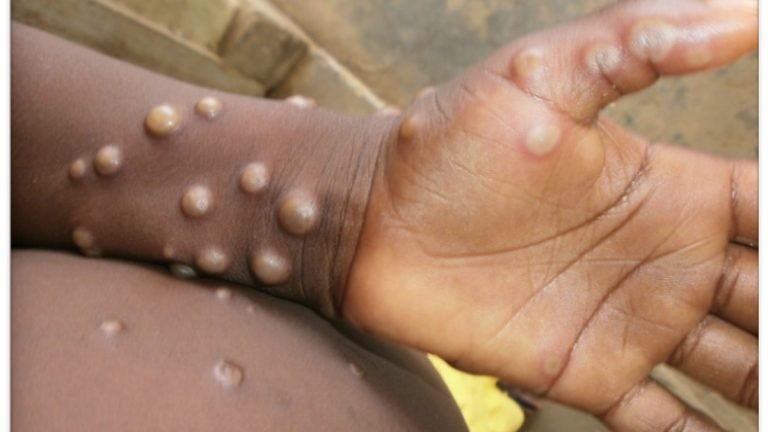Often confused with chickenpox, monkeypox is a rare viral infection that does not spread easily between people and is usually a mild “self-limiting illness” and most people recover within a few weeks.
UK health authorities have confirmed a case of monkeypox, a virus passed from infected animals such as rodents to humans, in someone who has a recent travel history to Nigeria, where it is believed to have transmitted it.
UK The Health Protection Agency (UKHSA) said monkeypox is a rare viral infection that does not spread easily between people and is usually a mild “self-limiting illness” and most people recover within a few weeks. However, in some cases serious illness can occur.
“It is important to emphasize that monkeypox does not spread easily between people and the overall risk to the general public is very low,” Dr. Colin Brown, director of clinical and emerging infections at UKHSA, said on Saturday.
“We are working with NHS England and NHS Improvement (NHSEI) to contact individuals who had close contact with the case before the infection was confirmed, so that they can be assessed and advised. The UKHSA and the NHS have well established and robust infection control procedures in place to deal with imported infectious disease cases and these will be strictly followed,” he said.
The patient is being treated in a specialist isolation unit at St Thomas’ Hospital by specialist clinical staff with strict infection prevention procedures, said Dr Nicholas Price, consultant in infectious diseases at Guy and St. Thomas Hospital.
As a precautionary measure, UKHSA experts said they are working closely with England’s state-funded National Health Service (NHS) and will contact people who are in close contact with the individual to provide information and health advice. would have been in
This involves contact with multiple passengers who traveled in close proximity to the patient on the same flight to the UK.
Initial symptoms include fever, headache, muscle aches, back pain, swollen lymph nodes, chills and tiredness. A rash may develop, often starting on the face, then spreading to other parts of the body. The grains change and go through various stages before eventually forming a crust, which then falls off.
It can spread when someone is in close contact with an infected person. The virus can enter the body through broken skin, the respiratory tract, or through the eyes, nose or mouth.
The NHS said the infection can be caught from infected wild animals in parts of West and Central Africa and is believed to be transmitted by rodents.
The UKHSA said people without symptoms are not considered contagious, but as a precaution, people who have been close to an infected traveler are being contacted to ensure they are unwell if they become unwell. They can be treated quickly.
The first recorded incidence of monkeypox virus in the UK was in 2018, and a handful of cases have been confirmed by health officials since then.

